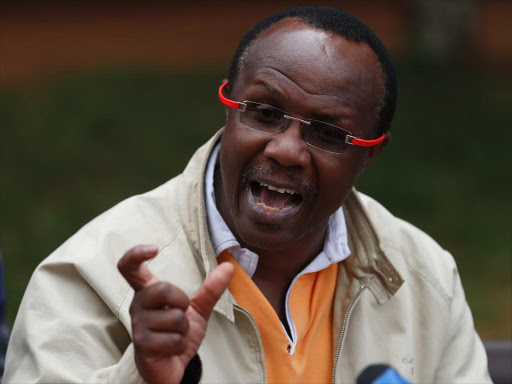It’s been all motion for President Uhuru Kenyatta’s anti-corruption crusade but no movement.
This is the verdict of a civil society report on the government’s renewed anti-graft crusade, describing the efforts as part of the strategy that enables state capture.
The report released by Africa Centre for Open Governance (Africog) says the current anti-corruption approach is “largely tactical, too legalistic and prosecution-driven” and “will not yield the desired fruits”.
The approach is also open to sabotage by counter-corruption narratives weaponised as a political tool in Jubilee’s factional infighting, the report released Wednesday says.
While the initiative needs support, the efforts have been tried before—mainly during former President Mwai Kibaki’s first term—but yielded no tangible results.
“High profile arrests and indictments, aggressive repatriation attempts, re-vetting and suspending of procurement officers and revitalising and funding blue-ribbon multi-sectoral agencies have all been tried before and proven to be ineffectual,” the report reads.
It asserts that the purported fight is a wild goose chase on purpose to divert attention from massive state capture by the political elite.
This, the report explains, is because the difficulties of corruption in the country lie in the union of corruption and politics.
The report explains that the state, especially the Presidency and Treasury, has been specially purposed into a zone of personal appropriation to gut away state resources for personal enrichment.
“It is no accident that three subsequent elections since 2007 have been deeply controversial. The deep state does not want to relinquish power because this would mean they forfeit privilege,” said Wachira Maina, a constitutional lawyer who authored the report.
The gradual arrest of the low-ranking officers in affected departments is a way of assuaging public outrage, he said.
Most of those cases would eventually be dropped six or seven months later, Maina alleged, as part of the state capture. Periodic elections are deliberately made a sham to preserve the interest of the state captors, to show a semblance of democracy.
Gladwell Otieno, the executive director of Africog, said the complex corruption situation in the country has been compounded by the hijacking of public assets and resources to further private business interests.
“Individuals at the highest echelon of leadership of the country are openly using their spaces to further their commercial interest and that is why the so-called fight against corruption remains a PR gimmick and a charade,” she said.
Outspoken economist David Ndii was more blunt, asserting that President Uhuru Kenyatta and his deputy William Ruto have shared the corruption pie, “with Uhuru being meticulous in having his family business interest metastasize into the public resources sphere while Ruto remaining the public face of it”.
Auditor General Edward Ouko said lifestyle audits and asset recovery should be mainstreamed as the main approach in fighting corruption.
This will help plough money and wealth whose owners cannot account for back to the exchequer, he said.
He said, if one has accumulated wealth that he cannot clearly and credibly account for, it should be standard to have 75 per cent or more attached and reverted back to the state at the first instance even as litigation, if any, is pursued.
Recounting his personal reflections while at the helm of the audit office, Ouko said the country’s budgeting system is a base of budgeted corruption, where officials crafting public expenditure statements detail deliberate votes to line individual pockets.
“While you view it as state capture, I also view it as a case of budgeted corruption where officials strategically put resources in the budget system and later extract them,” he said.
“We should mainstream asset recovery and lifestyle audit as part of the anti-corruption efforts.”
Ouko’s eight-year non-renewable term ends towards this year.
Regarding the reforms he would wish to see when his successor takes over, Ouko called for citizen-based budget oversight.
“Accountability should be transferred to the people on the ground. Not the elite in Nairobi,” he said.
(Edited by R.Wamochie)
